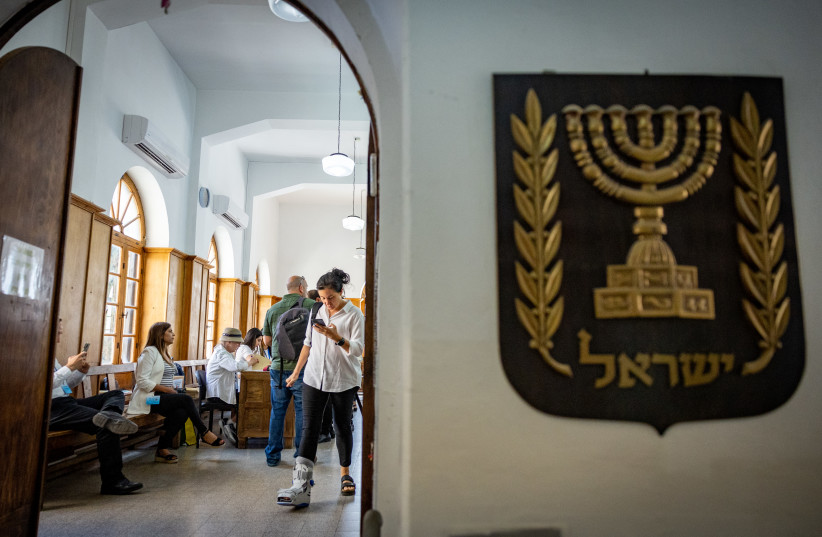With judicial reform legislation set to continue progressing in Knesset committees this week, tensions between different political factions rose over the weekend with intensifying protests and clashes between demonstrators.
“There’s nothing to be worried about,” Justice Minister Yariv Levin told supporters rallying outside his Modi’in home on Friday. “I’m strong, I’m determined, and together we will pass the reform.”
The reasonableness standard bill, one of the reform provisions, is set to see further preparation for its first reading at a Constitution, Law, and Justice Committee session on Monday. A second hearing on the bill set for Tuesday will feature representatives of the Israel Bar Association. The government is expected to try to pass the bill by July 31.
The private bill would prevent the use of the reasonableness standard by the courts in judgments on the administrative decisions of elected officials. The standard is a common law principle that allows for the striking of government administrative acts that are deemed beyond the scope of what a responsible and reasonable authority would undertake.
Other reform bills that were newly introduced the previous week would see the weakening of the Israel Bar Association as a voluntary organization for attorneys, and a private bill that would make the opinions of government legal advisers not legally binding.

Levin attacked the reasonableness standard with a graphic posted to social media on Saturday night, describing it as a tool that allowed the court to interfere with government decisions. It argued that the standard let the courts decide what was reasonable, rather than the electorate as required in a democracy. The bill would make it so that the court could not invalidate a government action because of a political worldview, according to Levin’s graphic.
Push back from Lapid
Opposition leader Yair Lapid defended the reasonableness standard at a protest on Saturday night in Ra’anana and attacked the renewed legislative push.
“They’re trying to confuse us, they tell us, ‘We’re only passing the reason of reasonableness, it’s small, it’s technical, the opposition has already agreed to it in the President’s Residence,’” said Lapid. “This is a complete lie. No one agreed to anything.”
Lapid said the bill would damage the authority and damage the country’s democracy. The reasonableness standard was needed because of politicians that crossed lines and to prevent those repeatedly convicted of crimes, like Shas chairman Arye Deri, from being a minister.
“If the reasonableness standard is eliminated, all restrictions will be breached, all boundaries will be crossed,” said Lapid. “We need the reasonableness standard because we have an unreasonable government. We need it because the court is the last line of defense for Israeli democracy.”
While the last legislative push was done quickly by force and stopped by protests, Lapid said the government was trying to pass smaller pieces slowly.
With legislation moving forward, anti-judicial reform protests are also picking up pace. The demonstrations had continued on a back burner since Prime Minister Benjamin Netanyahu froze reform legislation in March.
Saturday marked the 26th consecutive week, a half year, of protests against the government’s proposed judicial reform. According to protest organizers, over 286,000 people came out to protest on Saturday night of which 150,000 were present in Kaplan junction in Tel Aviv.
Protesters in Tel Aviv partially blocked Ayalon Highway lanes Saturday evening before the demonstration on Kaplan Street. The police removed the protesters.
At the Kaplan protest, a confrontation arose between Brothers in Arms activists and a group of demonstrators who tried to wave Palestinian flags. One Brothers in Arms protester was sprayed with pepper spray by a demonstrator holding a Palestinian flag.
“Just as we will not allow violence in demonstrations, we will not accept the waving of enemy flags,” the Brothers in Arms reservist protest group said. “The protest against the coup d’état is a patriotic protest by those who love the state and not by those who oppose its existence.”
As part of a series of protest actions this week, protest leaders plan to disrupt Ben-Gurion Airport on Monday.
“Starting Saturday night, we call on the public to join targeted disruption operations aimed at establishing a fact before the government of destruction: the dictatorship will not pass!” said the protest movements.
Tzvi Joffre contributed to this report.
